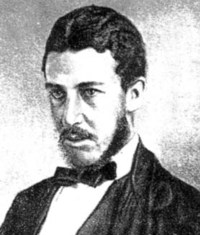
William Stanley Jevons
William Stanley Jevons, LL.D., MA, FRS was an English economist and logician.
Irving Fisher described Jevons' book A General Mathematical Theory of Political Economy (1862) as the start of the mathematical method in economics. It made the case that economics as a science concerned with quantities is necessarily mathematical. In so doing, it expounded upon the "final" (marginal) utility theory of value. Jevons' work, along with similar discoveries made by Carl Menger in Vienna (1871) and by Léon Walras in Switzerland (1874), marked the opening of a new period in the history of economic thought. Jevons' contribution to the marginal revolution in economics in the late 19th century established his reputation as a leading political economist and
If you like author William Stanley Jevons here is the list of authors you may also like
Buy books on AmazonWilliam Stanley Jevons similar authors
-
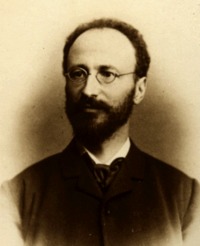
Eugen von Böhm-Bawerk
Austrian economist who made important contributions to the development of the Austrian School of Economics. He served intermittently as the Austrian Minister of Finance between 1895 and 1904. He also wrote a series of extensive critiques of Marxism.
Buy books on Amazon -

Eric J. Hobsbawm
Eric John Ernest Hobsbawm was a British historian of the rise of industrial capitalism, socialism and nationalism. His best-known works include his tetralogy about what he called the "long 19th century" (The Age of Revolution: Europe 1789–1848, The Age of Capital: 1848–1875 and The Age of Empire: 1875–1914) and the "short 20th century" (The Age of Extremes), and an edited volume that introduced the influential idea of "invented traditions". A life-long Marxist, his socio-political convictions influenced the character of his work.
Buy books on Amazon
Hobsbawm was born in Alexandria, Egypt, and spent his childhood mainly in Vienna and Berlin. Following the death of his parents and the rise to power of Adolf Hitler, Hobsbawm moved to London with his adoptive fami -

John Perkins
John Perkins is an activist and author. As a former chief economist at Boston strategic-consulting firm Chas. T. Main, Perkins says that he was an "economic hit man" for 10 years, helping U.S. intelligence agencies and multinational corporations cajole and blackmail foreign leaders into serving U.S. foreign policy and awarding lucrative contracts to American business.
Buy books on Amazon
However, after several years struggling internally over the role he was playing in crippling foreign economies, he quit his consulting job. In the 1980s Perkins founded and directed a successful independent energy company, which he subsequently sold. Since then he has been heavily involved with non-profit organizations in Ecuador and around the world. He continues this work tod -

Karl Marx
With the help of Friedrich Engels, German philosopher and revolutionary Karl Marx wrote The Communist Manifesto (1848) and Das Kapital (1867-1894), works, which explain historical development in terms of the interaction of contradictory economic forces, form many regimes, and profoundly influenced the social sciences.
Buy books on Amazon
German social theorist Friedrich Engels collaborated with Karl Marx on The Communist Manifesto in 1848 and on numerous other works.
Mikhail Mikhailovich Bakhtin in London opposed Communism of Karl Marx with his antithetical anarchy.
Works of Jacques Martin Barzun include Darwin, Marx, Wagner (1941).
The Prussian kingdom introduced a prohibition on Jews, practicing law; in response, a man converted to Protestantism -

J. Sheridan Le Fanu
Joseph Thomas Sheridan Le Fanu was an Irish writer of Gothic tales and mystery novels. He was the leading ghost-story writer of the nineteenth century and was central to the development of the genre in the Victorian era. M.R. James described Le Fanu as "absolutely in the first rank as a writer of ghost stories". Three of his best-known works are Uncle Silas, Carmilla and The House by the Churchyard.
Buy books on Amazon -

Ludwig von Mises
Ludwig Heinrich Edler von Mises (German pronunciation: [ˈluːtvɪç fɔn ˈmiːzəs]; September 29, 1881 – October 10, 1973) was an Austrian economist, historian, philosopher, author, and classical liberal who had a significant influence on the Austrian government's economic policies in the first third of the 20th century, the Austrian School of Economics, and the modern free-market libertarian movement.
Buy books on Amazon -

Murray N. Rothbard
Murray Newton Rothbard was an influential American historian, natural law theorist and economist of the Austrian School who helped define modern libertarianism. Rothbard took the Austrian School's emphasis on spontaneous order and condemnation of central planning to an individualist anarchist conclusion, which he termed "anarcho-capitalism".
Buy books on Amazon
In the 1970s, he assisted Charles Koch and Ed Crane to found the Cato Institute as libertarian think tank. -

Alfred Marshall
Alfred Marshall was one of the most influential economists of his time. His book, Principles of Economics (1890), was the dominant economic textbook in England for many years. It brings the ideas of supply and demand, marginal utility, and costs of production into a coherent whole. He is known as one of the founders of economics.
Buy books on Amazon -
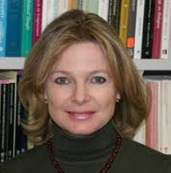
Helena Rosenblatt
Helena Rosenblatt serves as executive officer of the Ph.D. Program in History. Her specialty is eighteenth- and nineteenth-century European intellectual history. She is the author of Rousseau and Geneva: From the First Discourse to the Social Contract 1749–1762 (1997) and Liberal Values: Benjamin Constant and the Politics of Religion (2008). She is also the editor of Discourse on the Origin and Foundations of Inequality among Men by Jean-Jacques Rousseau (2010) and the Cambridge Companion to Constant (2009); and coeditor, with Raf Geenens, of French Liberalism from Montesquieu to the Present Day (2012).
Buy books on Amazon
Rosenblatt’s numerous articles have appeared in such journals as Modern Intellectual History, French Historical Studies, History of Europea -

Dan Ariely
From Wikipedia:
Buy books on Amazon
Dan Ariely is the James B. Duke Professor of Behavioral Economics at Duke University. He also holds an appointment at the MIT Media Lab where he is the head of the eRationality research group. He was formerly the Alfred P. Sloan Professor of Behavioral Economics at MIT Sloan School of Management.
Dan Ariely grew up in Israel after birth in New York. In his senior year of high school, Ariely was active in Hanoar Haoved Vehalomed, an Israeli youth movement. While he was preparing a ktovet esh (fire inscription) for a traditional nighttime ceremony, the flammable materials he was mixing exploded, causing third-degree burns to over 70 percent of his body.[
Ariely recovered and went on to graduate from Tel Aviv University and receiv -
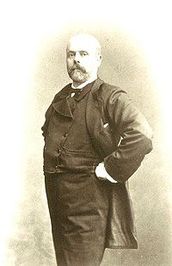
-

Eugen von Böhm-Bawerk
Austrian economist who made important contributions to the development of the Austrian School of Economics. He served intermittently as the Austrian Minister of Finance between 1895 and 1904. He also wrote a series of extensive critiques of Marxism.
Buy books on Amazon -

Benedict Anderson
Benedict Richard O'Gorman Anderson was Aaron L. Binenkorb Professor Emeritus of International Studies, Government & Asian Studies at Cornell University, and is best known for his celebrated book Imagined Communities: Reflections on the Origin and Spread of Nationalism, first published in 1983. Anderson was born in Kunming, China, to James O'Gorman Anderson and Veronica Beatrice Bigham, and in 1941 the family moved to California. In 1957, Anderson received a Bachelor of Arts in Classics from Cambridge University, and he later earned a Ph.D. from Cornell's Department of Government, where he studied modern Indonesia under the guidance of George Kahin. He is the brother of historian Perry Anderson.
Buy books on Amazon -

Augustine of Hippo
Early church father and philosopher Saint Augustine served from 396 as the bishop of Hippo in present-day Algeria and through such writings as the autobiographical Confessions in 397 and the voluminous City of God from 413 to 426 profoundly influenced Christianity, argued against Manichaeism and Donatism, and helped to establish the doctrine of original sin.
Buy books on Amazon
An Augustinian follows the principles and doctrines of Saint Augustine.
People also know Aurelius Augustinus in English of Regius (Annaba). From the Africa province of the Roman Empire, people generally consider this Latin theologian of the greatest thinkers of all times. He very developed the west. According to Jerome, a contemporary, Augustine renewed "the ancient Faith."
The -
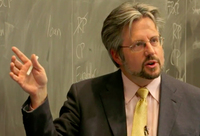
Perry G. Mehrling
Perry G. Mehrling (born August 14, 1959) is professor of economics at Barnard College in New York City. He specializes in the study of financial theory within the history of economics.
Buy books on Amazon -

Alfred Marshall
Alfred Marshall was one of the most influential economists of his time. His book, Principles of Economics (1890), was the dominant economic textbook in England for many years. It brings the ideas of supply and demand, marginal utility, and costs of production into a coherent whole. He is known as one of the founders of economics.
Buy books on Amazon -
